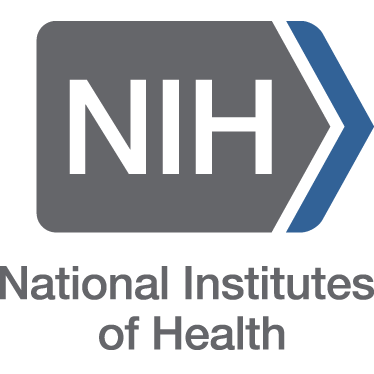Home > Treatment Management > NF2 Treatment Centers >
National Institute of Health
Last Updated: 03/2/20
- Transcript:
Research Advances in NF2 - NF2 Studies
- Required: Medical_History.doc

(NIH)
1. Transcript: Research Advances in NF2
Primary Speaker: Dr. Ashok Asthagiri
DATE: January 2013 | SOURCE: Transcript - NF Network & National Institutes of Health
2. NIH Programs
i. NF2 Natural History Protocol (08-N-0044)
The NIH NF2 Natural History Protocol is closed to new patient enrollment, but remains an active protocol (ie. NIH will continue seeing patients every year until they have reached their 5-year time point).
This is a natural history study which only includes annual outpatient protocol visits for MRI imaging and assessment. This included; blood work, audiology/vestibular testing, eye evaluation, etc. If surgery is indicated for a NF2 patient on the natural history protocol, it is actually offered under a separate surgery protocol (03-N-0164). NIH is not actually performing NF2-related surgeries under the natural history protocol.
ii. PET to Predict Tumor Growth in NF2 (10-N-0193)
The PET to Predict Tumor Growth in NF2 remains an active protocol (NIH will continue seeing patients every 6 months for 2 years following their PET scan).
iii. Evaluation and Treatment of Neurosurgical Disorders (03-N-0164) - (Closed Protocal)
The Evaluation and Treatment of Neurosurgical Disorders is open to new patient enrollment.
This protocol allows NIH to evaluate and treat patients with brain, spine, and pituitary tumors requiring neurosurgical intervention. This protocol is not limited to patients with NF2, but since NF2 patients have tumors on their brain and spine, individuals may be eligible for this protocol. The main research aspect of this protocol is the tissue that NIH retrieves during surgery, bank, and study in our research lab.
iv. Review of MRI Imaging
The NIH Surgical Neurology Branch staff is willing to review MRI imaging of NF2 patients (both existing and prospective patients). If a case review determines that neurosurgical intervention is needed, and the surgery is something offered at the NIH, NIH may be able to offer NF2 patients the option of coming to the NIH for evaluation and treatment under surgery protocol 03-N-0164. Patients would be provided with standard clinical care and surgical treatment at the NIH. With the patient's permission, NIH researchers would use the tumor tissue removed during surgery to learn more about NF2.
If patients with NF2 are interested in having the NINDS Surgical Neurology Branch review their case, they should gather and submit the following materials for review:
- Recent MRI scans (brain and spine): NIH needs the actual scans on CD.
- Medical History and Pertinent Clinical Information: Summary of clinical condition, past surgeries/treatments (such as radiation, chemotherapy), copies of audiology reports, information on current hearing status (any history of implants?), results of genetic testing, etc.
Records should be sent to the following:
- Surgical Neurology Branch, NINDS
- NIH NF2 Clinic
- 10 Center Drive, Room 3D20
- Bethesda, MD 20892-1414
- Office: 301-496-2921
- Fax: 301-480-1615
- nf2@nih.gov
Natural History Study of Patients With Neurofibromatosis Type 2
Prospective Natural History Study of Patients with Neurofibromatosis Type 2 (NF2)". https://clinicalstudies.info.nih.gov/ProtocolDetails.aspx?A_2008-N-0044.html



 |Google Play
|Google Play